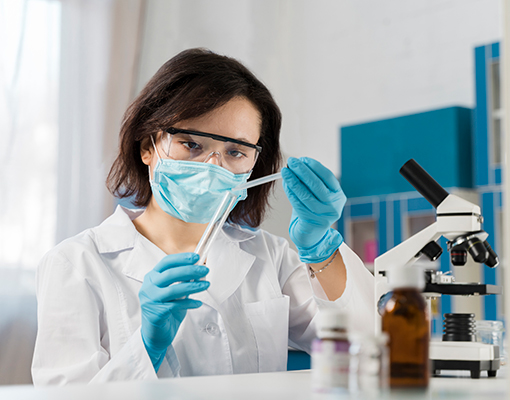About This Package
The chloride test measures the concentration of chloride ions in the blood. Chloride is an essential electrolyte that helps maintain proper fluid balance, acid-base balance, and overall electrical neutrality in the body. It works closely with other electrolytes such as sodium, potassium, and bicarbonate. Chloride is primarily ingested through diet and absorbed in the intestines.
Abnormal chloride levels can indicate various health issues. Elevated chloride levels, or hyperchloremia, can result from dehydration, kidney dysfunction, or excessive intake of saline solutions. Low chloride levels, or hypochloremia, can occur due to conditions like prolonged vomiting, diarrhea, or certain hormonal imbalances. Regular monitoring of chloride levels is crucial for diagnosing and managing conditions affecting electrolyte balance and overall health.
Chloride is an essential electrolyte found in the body, primarily in bodily fluids such as blood, urine, and sweat. It plays a crucial role in maintaining fluid balance, electrolyte balance, and acid-base balance within the body. Chloride ions work closely with sodium and potassium ions to regulate osmotic pressure and ensure the proper distribution of fluids in and out of cells. This balance is vital for normal cellular function, nerve transmission, and muscle contraction.
Chloride is typically ingested through dietary sources, particularly table salt (sodium chloride), and is absorbed in the intestines. The kidneys play a key role in regulating chloride levels by filtering and reabsorbing it as needed. Abnormal chloride levels can indicate various health conditions. Elevated chloride levels (hyperchloremia) can result from dehydration, kidney dysfunction, or excessive intake of saline solutions. Low chloride levels (hypochloremia) can be due to conditions like prolonged vomiting, diarrhea, or certain hormonal imbalances. Monitoring chloride levels helps diagnose and manage conditions affecting electrolyte balance and overall health.
क्लोराइड एक आवश्यक इलेक्ट्रोलाइट है जो शरीर में प्रमुख रूप से रक्त, मूत्र और पसीने जैसे शारीरिक तरल पदार्थों में पाया जाता है। यह शरीर में तरल संतुलन, इलेक्ट्रोलाइट संतुलन और अम्ल-क्षार संतुलन बनाए रखने में महत्वपूर्ण भूमिका निभाता है। क्लोराइड आयन सोडियम और पोटेशियम आयनों के साथ मिलकर आसमाटिक दबाव को नियंत्रित करते हैं और कोशिकाओं के अंदर और बाहर तरल पदार्थों के सही वितरण को सुनिश्चित करते हैं। यह संतुलन सामान्य कोशिकीय कार्य, तंत्रिका संचरण और मांसपेशी संकुचन के लिए महत्वपूर्ण है।
क्लोराइड आमतौर पर आहार स्रोतों, विशेष रूप से टेबल सॉल्ट (सोडियम क्लोराइड) के माध्यम से ग्रहण किया जाता है और आंतों में अवशोषित होता है। गुर्दे क्लोराइड के स्तर को विनियमित करने में महत्वपूर्ण भूमिका निभाते हैं, आवश्यकतानुसार इसे फ़िल्टर और पुन: अवशोषित करते हैं। असामान्य क्लोराइड स्तर विभिन्न स्वास्थ्य स्थितियों का संकेत दे सकते हैं। उच्च क्लोराइड स्तर (हाइपरक्लोरेमिया) निर्जलीकरण, गुर्दे की खराबी या अत्यधिक खारा समाधान के सेवन से हो सकता है। निम्न क्लोराइड स्तर (हाइपोक्लोरेमिया) लंबे समय तक उल्टी, दस्त या कुछ हार्मोनल असंतुलन जैसी स्थितियों के कारण हो सकता है। क्लोराइड के स्तर की निगरानी इलेक्ट्रोलाइट संतुलन और समग्र स्वास्थ्य को प्रभावित करने वाली स्थितियों का निदान और प्रबंधन करने में मदद करती है।
Service Coverage Area
We provide blood tests in Noida, Gurgaon, Faridabad, Delhi, Indirapuram, Ghaziabad,
Greater Noida, and Greater Noida Extension(west).
Included Tests & Parameters










